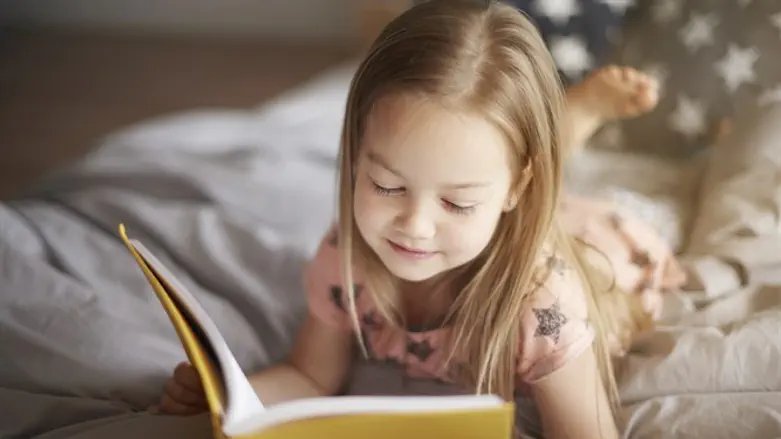
In honor of Book Week, I would like to discuss the "electronics generation." Sometimes, we don't even try to make them into bookworms.
Especially today, in an era in which everything is fast-moving, it's important to raise children who read. Children who read become teenagers who read and adults who read, and they won't have difficulty writing a detailed answer to a question on a literature, history, Bible, or any other test. They won't have difficulty with high school studies, and they won't have difficulty with college studies.
Reading is a habit which needs to be nurtured from infancy. At first, we sing to the baby, we talk to him, and we read him short stories with big, obvious pictures.
As a college professor, I often come across students who have difficulty expressing themselves, whether orally or in writing. My suggestion to these students is to begin reading, and when they protest that it's too hard, I tell them to start with children's or young adult books, and only later move to adult books.
Those students who took my advice told me that they were able to release the block, and now speak more fluently, and express deeper thoughts. They also say their writing became easier and more fluid.
Some of these non-readers admit that they were turned off by people who tried to force them to read, or by having to read extensively for school or other texts.
Parents and teachers need to understand that it's important to give children the message that reading is an enjoyable activity, and not an obligation to be fulfilled.
It's important that parents read to or with their children, instead of allowing children to read a digital book on a screen, or leaving it to the preschool teacher. Neither the preschool teacher nor the screen is able to hug each child while reading a book.
When a child sits next to us and enjoys our warmth, our touch, and our smell, reading becomes an enjoyable multi-sensory experience which remains engraved in the child's memory for years to come.
Even children who already read on their own can enjoy storytime with a loving parent: The parent can read to the children, or both parent and child can snuggle together. The books also make for good conversation starters, and allow parents and children to find mutually enjoyable topics of conversation.
For younger children and toddlers, reading time can be an excellent way to build a positive relationship between parent and child, encourage children to love reading, and teach children emotional and social skills, as well as language.
There is no substitute for a parent who reads books to his children - as long as the parent does not read monotonously and without feeling.
Some parents are embarrassed to read stories to their children, especially when others are watching. That's a shame. They're missing out on one of the best childhood experiences. Childhood offers many experiences, both big and small, but reading together with a loving parent is an experience children never forget.
The slow pace, touching the pages, and seeing the book come to life help children develop their attention spans. This is especially important in today's "digital age," when the world moves at a fast pace and children rarely have time to develop their own personal pace.
When reading to children, ask yourself: Is the language too difficult for the child's age and level? It's okay to explain a few difficult words in each book, in order to build a child's vocabulary. But if we have to explain every sentence, children will lose interest.
Don't ask the child if he knows what a word means, just give a synonym for it. For instance, instead of asking the child to explain what an "ancient tree" is, just add that the tree was "old."
Also ask yourself: Is the plot interesting? Can the child understand the flow of the story? Does the story include elements from his world? Are the illustrations quality, and do they reflect the story? Does the story have values which we want to teach our children (or values which we do not want our children exposed to)? Does the book speak to a child's emotions, and will it help him understand his own emotions more clearly?
After you read the book, you can talk to the child about the story and try to relate it to his life. How would the child have responded in the same situation? Would he have changed the end of the story? Does the story remind the child of a real-life event which happened to himself or one of his friends?
Reading is important, and reading to young children may be one of the most important influences on a child's future. Certainly, reading is more important than any homework a child will ever do.
The author heads the Early Childhood Education Department at Haifa's Sha'anan College.